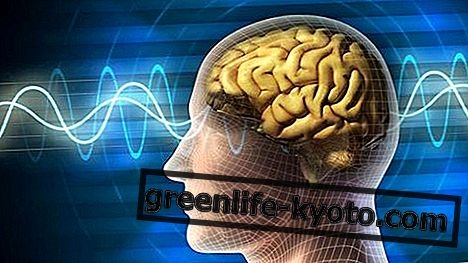
When we get sick, one of the first things we ask ourselves is "Why?"
The search for the meaning of the disease and its causes is one of the essential components of the path of care that each person decides to undertake and, at the same time, allows to better face convalescence.
In some cases, strictly biological explanations that give meaning to the disease as an expression of pathogens (bacteria, viruses) are limiting and fail to satisfy the patient's sense of need. For this reason, numerous writings of various types - from scientific studies, to informative texts and blogs - shift the focus from biological causes to the simultaneously bodily, psychic, and social causes of the disease .
We see in what sense diseases can be addressed as requests codified in body language.
Disease as a bridge between body and mind
Among the various ways of interpreting and thinking about illness, one of those that is taking hold comes from psychosomatics. According to this branch of medicine, illness is an organic manifestation - or a message expressed in body language - produced by emotions and other non-somatic components of the person.
This view is supported by the discourse produced by various fields of scientific research. Recent studies carried out in Neurophysiology, Psychoanalysis and Psycho-NeuroEndocrine Immunology - the discipline that studies the relations between the nervous system, the immune system and the endocrine system - show that the physical components of the body (organs and systems) and mental activity and behavior interact between them and influence each other so much that they cannot talk about a separation between them.
According to the psychosomatic view, the disease is therefore a language that the self adopts to communicate something to the individual himself and that it would be good to take into consideration. In the book "Thinking with the body" by Jader Tolja and Francesca Speciani, the example of headaches is described: is it possible that he is communicating something to us about our lifestyle and is requesting us to change our habits?
When we take an aspirin do we not run the risk of suppressing all the information that the illness is offering us?
Narrative medicine places the patient at the center of care: here is how
Disease as a symbol of the psyche
A further step taken in the direction of a progressive reconciliation and fusion between mind and body is that of scholars who, for their theories that are counter-current to those formally recognized by the institutional medical system, are defined as esoteric.
Among these, Rüdiger Dahlke, a German physician and psychotherapist, maintains that body language " is the most widely spoken language in the world " and that illness is a symbol through which the body manifests, both physically and psychically, the inner condition of the individual (for example, may be the expression of inner conflicts ). To achieve a deep and lasting healing, therefore, the symbolic interpretation of the illness is necessary to understand those requests of the self of which one is not yet fully aware.
Among the many books by Dahlke we remember “Illness language of the soul. Meaning and interpretation of diseases "(1996) and" Disease as a symbol. Dictionary of diseases. Symptoms, meaning, interpretation "(2005).
Disease as a request for social equality
A different view is that proposed by medical anthropology, in which different scholars consider the disease as a social reality capable of expressing the inequalities and power relations in which individuals are inserted.
As various researches have shown, in fact, the disease can transcend the individual sphere and express the subject's demands in the social and political dimension.
A study carried out in the 80s by Barbara Smith in the coal mines in Virginia (United States) had shown that the disease called "silicosis" did not affect everyone indiscriminately, but only some subjects, which coincided with the socially weaker sectors : the workers got sick, while the owners of the companies they worked for remained healthy (the essay analyzing this case is titled "Black Lung. The Social Production of Disease").
The disease, according to this perspective, is not only the expression of certain biological or psychological conditions, on the contrary it can be understood and studied as an expression of social inequalities and, at the same time, as a request, expressed through the sick body , of equality of rights, access to resources and health .













